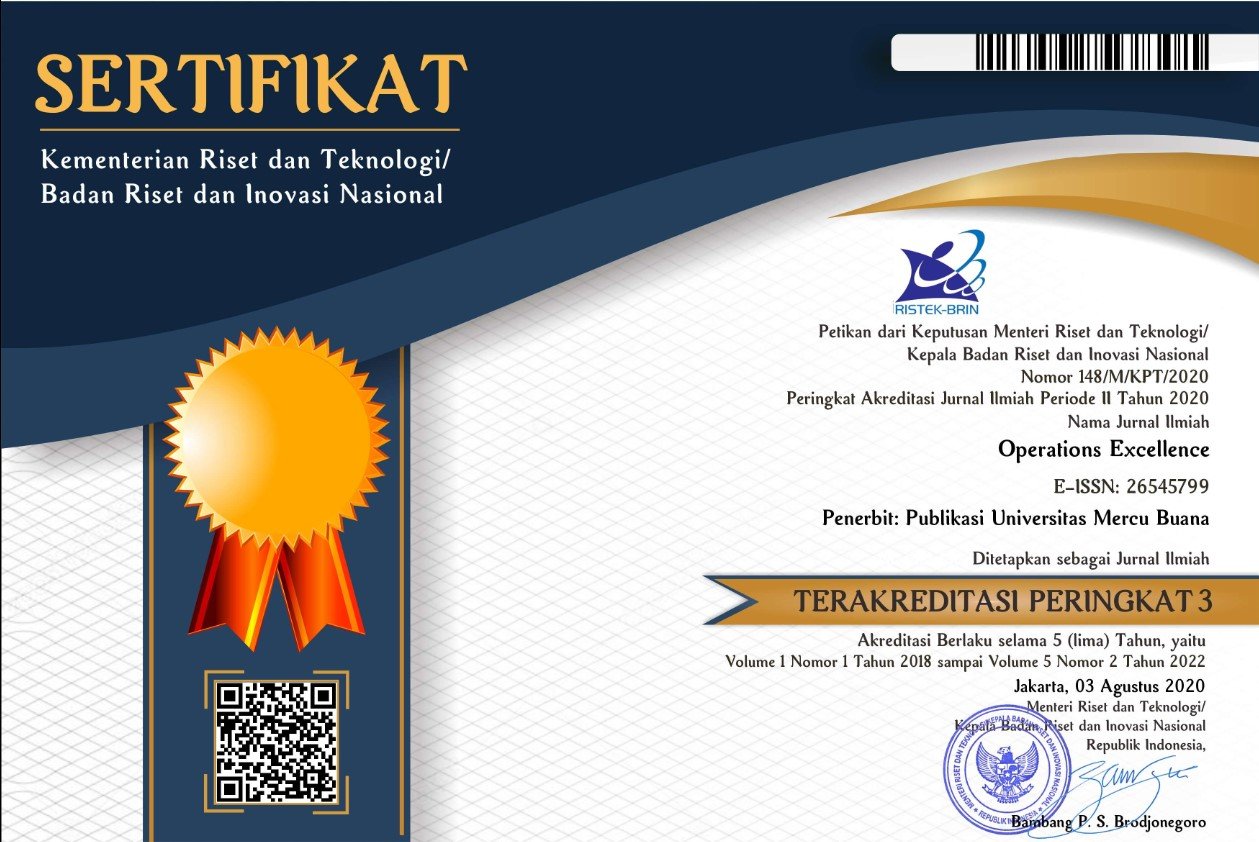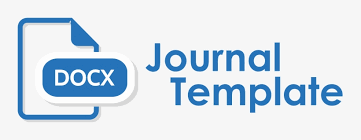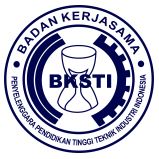Examining the key factors influencing the sustainability of domestic wastewater reuse in Jakarta using AHP method
Abstract
Population expansion, urbanization, economic development, pollution, and climate change are all contributing factors to the growing global problem of water shortage. The Sustainable Development Goals (SDGs) are in danger of being achieved because of this dilemma, particularly SDGs 6 and 11 on clean water and sanitation and sustainable cities, respectively. Only 65.9% of Jakarta's population has access to potable water, and water stress levels range from 40 to 80%. The government is planning a wastewater treatment system (SPALD-T) to recycle household wastewater and produce clean water in order to address this issue. TB. Simatupang's Water Treatment Plant (WWTP) still faces obstacles in adopting wastewater reuse, nonetheless. In Indonesia, wastewater recycling has received little attention, with the majority of studies concentrating on technical concerns rather than sustainability considerations. In contrast, technologies such as desalination and rainfall harvesting are being investigated worldwide. The objective of this research is to examine the technical and non-technical elements that affect wastewater recycling's effectiveness for the generation of sustainable clean water. The results will offer crucial information to help Perumda Paljaya create policies that will effectively utilize wastewater, which will help Jakarta accomplish its sustainable development goals more broadly.
Keywords
Full Text:
PDFReferences
Adewumi, J. R., Ilemobade, A. A., & Van Zyl, J. E. (2010). Treated Wastewater Reuse in South Africa: Overview, Potential and Challenges. Resources, Conservation and Recycling, 55(2), 221–231. https://doi.org/10.1016/j.resconrec.2010.09.012
Ahmadi, E., McLellan, B., Mohammadi-Ivatloo, B., & Tezuka, T. (2020). The Role of Renewable Energy Resources in Sustainability of Water Desalination as a Potential Fresh-water Source: An Updated Review. Sustainability (Switzerland), 12(13). https://doi.org/10.3390/su12135233
Akhoundi, A., & Nazif, S. (2018). Sustainability Assessment of Wastewater Reuse Alternatives Using The Evidential Reasoning Approach. Journal of Cleaner Production, 195, 1350–1376. https://doi.org/10.1016/j.jclepro.2018.05.220
Alonso, J. A., & Lamata, T. (2006). Consistency in The Analytic Hierarchy Process: A New Approach. International Journal of Uncertainty, Fuzziness and Knowledge-Based Systems, 14(4), 445–459.
Bilal, M., Usman, M., Nadeem, M., & Shah, S. A. R. (2023). Water Security and Environmental Impact Assessment: A Study for Developing Economies. 90. https://doi.org/10.3390/ecws-7-14325
C.Visvanathan, & Asano, T. (2004). The Potential for Industrial Wastewater Reuse: Vol. I.
Chhipi-Shrestha, G., Rodriguez, M., & Sadiq, R. (2019). Selection of sustainable municipal water reuse applications by multi-stakeholders using game theory. Science of the Total Environment, 650, 2512–2526. https://doi.org/10.1016/j.scitotenv.2018.09.359
Cossio, C., Norrman, J., McConville, J., Mercado, A., & Rauch, S. (2020). Indicators for Sustainability Assessment of Small-scale Wastewater Treatment Plants in Low and Lower-middle Income Countries. Environmental and Sustainability Indicators, 6(March 2020), 100028. https://doi.org/10.1016/j.indic.2020.100028
Eid-Sabbagh, K., Roukoz, S., Nassif, M.-H., Velpuri, N., & Mateo-Sagasta, J. (2022). Analysis of Water Reuse Potential for Irrigation in Lebanon. IWMI Research Report 181.
Fukasawa, B. N., & Mierzwa, J. C. (2020). Identification of Water Reuse Potential in Metropolitan Regions using the Analytic Hierarchy Process. Environmental and Sustainability Indicators, 8(July), 1–14. https://doi.org/10.1016/j.indic.2020.100064
Gleick, P. H., & Cooley, H. (2021). Freshwater Scarcity. Annual Review of Environment and Resources, 46, 319–348. https://doi.org/10.1146/annurev-environ-012220-101319
Goepel, K. (2018). Implementation of an Online software tool for the Analytic Hierarchy Process (AHP-OS). International Journal of the Analytic Hierarchy Process, 10(3), 469–487. https://doi.org/10.13033/ijahp.v10i3.590
He, C., Liu, Z., Wu, J., Pan, X., Fang, Z., Li, J., & Bryan, B. A. (2021). Future Global Urban Water Scarcity and Potential Solutions. Nature Communications, 12(1), 1–11. https://doi.org/10.1038/s41467-021-25026-3
Hutagalung, A. O., & Hasibuan, S. (2019). Determining the Priority of Medical Equipment Maintenance with Analytical Hierarchy Process. International Journal of Online & Biomedical Engineering, 15(10).
Lee, K., & Jepson, W. (2020). Drivers and Barriers to Urban Water Reuse: A systematic Review. Water Security, 11(February), 100073. https://doi.org/10.1016/j.wasec.2020.100073
Maryati, S., Firman, T., & Humaira, A. N. S. (2022). A Sustainability Assessment of Decentralized Water Supply Systems in Bandung City, Indonesia. Utilities Policy, 76(March), 101373. https://doi.org/10.1016/j.jup.2022.101373
Mulyono, S. (2004). Riset Operasi. LP-Fakultas Ekonomi Universitas Indonesia.
Perumda Paljaya. (2023). Pembangunan IPALD dan Pemasangan Pipa Air Limbah.
Perumda PAM Jaya. (2021). Annual Report PAM Jaya 2021.
Priadi, C.R., Suleeman, E., Darmajanti, L., Novriaty, S., Suwartha, N., Resnawati, R., Handayani, R., Putri, G.L., Felaza, E., Tjahjono, T. (2017). Water Recycling Opportunity in the Business Sectors of Greater Jakarta Indonesia. Indonesia. International Journal of Technology, 8(6), pp.1031-1039.
Saaty, T. L. (1990). How to Make a Decision The Analytic Hierarchy Process (Vol. 48, Nomor 1, hal. 9–26). European Journal of Operational Research.
Saaty, T. L. (2008). Decision Making With the Analytic Hierarchy Process. Int. J. Services Sciences, 1(1).
Saaty, T. L., & Vargas, L. G. (2012). Models , Methods , Concepts & Applications of the Analytic Hierarchy Process. Springer New York Heidelberg Dordrecht London. https://doi.org/10.1007/978-1-4614-3597-6
Sgroi, M., Vagliasindi, F. G. A., & Roccaro, P. (2018). Feasibility, Sustainability and Circular Economy Concepts in Water Reuse. Current Opinion in Environmental Science and Health, 2, 20–25. https://doi.org/10.1016/j.coesh.2018.01.004
Silva, H., Blengini, A., Mota, L., Pezzuto, C., Lavorato, M., & Carvalho, M. (2020). Multi-criteria Analysis of Brazilian Wind Farms. International Journal of Renewable Energy Research, 10(2), 1042–1053. https://doi.org/10.20508/ijrer.v10i2.10914.g7976
Stathatou, P., Gad, F. K., Kampragou, E., & Grigoropoulou, H. P. (2014). Treated Wastewater Reuse Potential: Mitigating Water Scarcity Problems in The Aegean Islands. July. https://doi.org/10.1080/19443994.2014.934108
Thomaz, F. R., Miguez, M. G., de Souza Ribeiro de Sá, J. G., de Moura Alberto, G. W., & Fontes, J. P. M. (2023). Water Scarcity Risk Index: A Tool for Strategic Drought Risk Management. Water (Switzerland), 15(2). https://doi.org/10.3390/w15020255
Tortajada, C. (2020). Contributions of recycled wastewater to clean water and sanitation Sustainable Development Goals. npj Clean Water, 3(1). https://doi.org/10.1038/s41545-020-0069-3
UNEP. (2023). Wastewater – Turning Problem to Solution. A UNEP Rapid Response Assessment. United Nations Environment Programme.
UNESCO. (2023). The United Nations World Water Development Report 2023 - Partnerships and Cooperation for Water. United Nations Educational, Scientific and Cultural Organization. https://doi.org/10.1016/B978-0-12-821057-4.00003-3
DOI: http://dx.doi.org/10.22441/oe.2025.v17.i1.133
Refbacks
- There are currently no refbacks.
Copyright (c) 2025 Operations Excellence: Journal of Applied Industrial Engineering

This work is licensed under a Creative Commons Attribution-ShareAlike 4.0 International License.
Journal ISSN:
| Print ISSN: 2085-4293 | |
| Online ISSN: 2654-5799 |
Tim Editorial Office
Operations Excellence: Journal of Applied Industrial Engineering
Magister Teknik Industri Universitas Mercu Buana
Jl. Raya Meruya Selatan No. 1 Kembangan Jakarta Barat
Email: [[email protected]]
Website: http://publikasi.mercubuana.ac.id/index.php/oe
Journal DOI: 10.22441/oe
The Journal is Indexed and Journal List Title by:

.png)
.png)
.png)


Operations Excellence: Journal of Applied Industrial Engineering is licensed under a Creative Commons Attribution-NonCommercial-ShareAlike 4.0 International License.










